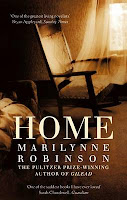 When life is a warReview by JANET TAYAn award-winning Chinese-American author writes about the horrific consequences that follow dissidence and government opposition
When life is a warReview by JANET TAYAn award-winning Chinese-American author writes about the horrific consequences that follow dissidence and government oppositionMENTION the Tiananmen Square massacre, and immediately one conjures images of student protestors being run over by tanks and shot by the Chinese army.
The 1989 protests, calling for economic change and democratic reform, started out as a day of mourning for the death of the pro-democracy official, Hu Yaobang, and ended in the loss of young lives.
There are speculations on the actual death toll; most foreign and independent sources reported casualties in the thousands, whereas the official death toll according to the Chinese government was between 200 and 300.
Yiyun Li, a Chinese-American writer (she was born in Beijing and moved to the US in 1996) said in an interview in
The Guardian newspaper in 2006 that she had spent an “involuntary gap year” in the army, like many teenagers. They were forced to return to Communism as a result of the Chinese government wanting to contain the scourge of dissidence and government opposition.
So successful was this re-education by the Chinese government that most of Li’s army peers, to her shock, had not even heard of the Tiananmen massacre. For her, that had been a turning point at age 17: “I became an adult, a grown up, after that,” she said.



The influence of the event is obvious in her first novel,
The Vagrants (Random House/Fourth Estate, 2009). Set in the 1970s, the novel starts with the announcement of an execution: Gu Shan, a young woman pronounced a counter-revolutionary by the Communist government, is sentenced to death. Her crime—renouncing Communism.
Li wastes no time in opening a window to the house of her grieving parents, Teacher Gu and Mrs Gu, who make arrangements for their daughter’s funeral and try to come to terms with the inevitability of her execution.
Gu Shan’s execution will affect not only the lives of her parents but also the intertwined destinies of the inhabitants of the provincial Muddy River.
Among them is Nini, a young girl born with physical deformities because Gu Shan kicked her pregnant mother; Bashi, the layabout jester who acts like a fool but shows himself to be capable of great love for his grandmother and Nini, who becomes his child bride; Kwen, a bachelor undertaker who hides a deep, disturbing secret; and Kai, a radio news announcer who marries into a rich and powerful family and could have had the same fate as Gu Shan.
Li pulls no punches in this depiction of politics and ideology that knows neither love nor kin. The sentiment in the novel is almost constant: fear makes cowards and monsters of us all. Fear of prosecution, torture and death.
The events that tear families apart serve as a deterrent for independent thought and change, and become a catalyst for hatred, judgment and dehumanising selfishness.
The moment there is a hint that a friend or family member could have done something to incur government prosecution, all efforts are made for complete disassociation.
Li does not hold back when describing corpse defilement or Gu Shan’s bleeding neck wrapped with surgical tape when her vocal cords were cut to prevent her from shouting slogans.
She shows the worst in human beings when they are cornered, how self-preservation can result in cruelty, and makes neither apologies nor excuses for the deplorable way people behave in desperate situations.
One often gets the feeling that Li’s characters are victims of circumstances, and like rats trapped in a maze, hopelessness descends on them even when they make the greatest of efforts to escape.



Li’s début collection of stories,
A Thousand Years of Good Prayers (winner of a slew of prizes, including the Frank O’Connor International Short Story Award, PEN/Hemingway Award, Guardian First Book Award, and California Book Award for First Fiction) demonstrates her ability in refining the craft of the short story with her vivid and empathic depiction of characters. The Vagrants, on the other hand, seems to lack her usual well-paced narrative and reads a little slow at times.
There is no denying the richness in her story and the emotional pull evoked by some of her characters. But one cannot help wondering if the novel might have benefited from the scrutiny of fewer lives for a more robust, literary concoction.
Nevertheless, enthusiasts of Chinese political history will enjoy the stories of faceless, nameless individuals who were unwittingly caught up in the instability and turmoil that engulfed China during its most draconian times.
There is no shortage of tragedies in this novel. The proverbial silver lining is practically non-existent. As Kai’s father aptly puts it: “Life is a war, and one rests only when death comes to fetch him.”
 JANET TAY
JANET TAY is a litigation lawyer by training, but decided to leave the legal profession to pursue her first love—books and writing. She is now a book editor at MPH Group Publishing in Kuala Lumpur. She is also working towards a Master’s degree in English Literature at Universiti Malaya in Kuala Lumpur. She is the co-editor of
Urban Odysseys: KL Stories (MPH Group Publishing, 2009).
Reproduced from the The Sunday Star of April 26, 2009


 June 2009
June 2009
 October-November 2009
October-November 2009 2009 Singapore Writers Festival
2009 Singapore Writers Festival












































